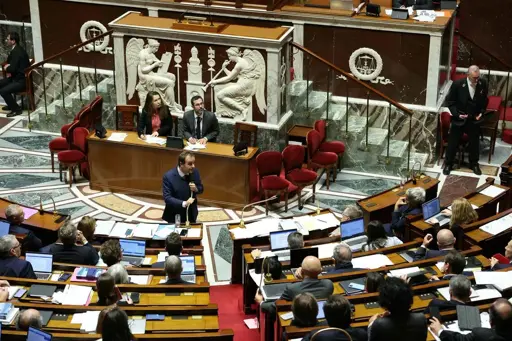A left-wing bloc made up of the Socialist, Communist, Green parties and the hard-left France Unbowed had proposed a minimum 2 per cent tax on wealth over €100 million (S$150 million), dubbed the “Zucman tax” after the French economist who devised it.
Mr Lecornu expressed his “profound disagreement” with the wealth-tax proposal, insisting there was no such thing as a “miracle tax”.



How does a luxury VAT on yachts and private jets and things like that hurt regular people more than the wealthy?
Across OECD countries, VAT & goods and service tax combined contribute around a third to the tax revenues (on average), that’s only slightly less than income from personal and corporate tax and capital gains tax. The rest (around 25%) comes mainly from social security contributions.
Compared to consumption taxes, income taxes impose steeper administrative and compliance costs. It would be much easier to apply in our modern world - contrary to more than 100 years ago, when nation states shifted from a primarily consumption tax-based system to an income tax-system, and when only an incredibly small number of citizens were subject to these income taxes.
Switching to a primarily consumption-based taxation would be a better choice for a variety of other reasons, too. I don’t say we should abandon income tax completely, but the shift would be a good thing imo.
[Edit typo.]
Oh, I didn’t really clarify that point, sorry - I just don’t think VAT on specifically luxury goods would yield much, it would just fail as a concept. Eg yachts you mentioned are often bought via non-EU counties & registered there. Also much easier to move production. But if you follow the money/wealth, you can get to it’s origins.
The mere definition of luxury goods is a tricky one too. Probably impossibility so to make a useful, meaningful system.
Where we now usually have two VAT tax brackets (eg food & non-food), that alone is still a huge & complex system to define.
And administrative costs of proper income taxes are for one already in place in most countries, and secondly if additional employees are needed, that is a net plus.
It does bother me that a lot of countries get more from VAT than from income taxes - but especially I’m talking corporate taxes. They are generally too low & flat.
Maybe look at it from this pov - someone living from paycheck to paycheck spends/pays max they can on VAT (or sales tax), whereas someone who doubles their already vast wealth can’t really double the spending that they would pay VAT on. So it’s disproportionate in general.
But then again - why not both? A tax on wealth, and a VAT on luxury goods?